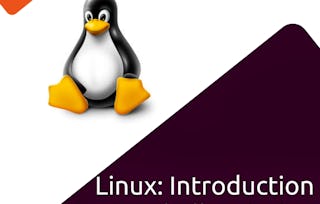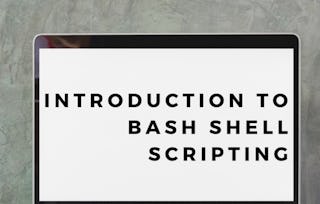Updated in May 2025.
This course now features Coursera Coach! A smarter way to learn with interactive, real-time conversations that help you test your knowledge, challenge assumptions, and deepen your understanding as you progress through the course. Unlock the full potential of Jq command in Bash shell scripting with this detailed and structured course. Beginning with a solid introduction to the Jq command, you’ll explore key concepts such as installation, working with REST APIs, and understanding input/output mechanics. You'll also learn how to pass JSON data into scripts and use basic filters effectively. As you progress, you'll dive into more advanced topics like handling arrays, constructing JSON objects, and utilizing key functions such as length, min, max, and del. The course also covers conditional statements and demonstrates how to manage JSON data with Linux, Unix, and Mac variables, providing practical examples like string concatenation, arithmetic operations, and handling environment variables. By the end, you will be able to combine filters, work with pipes, and use the Jq command seamlessly with Kubernetes and REST APIs. This course not only equips you with technical know-how but also ensures you can apply these skills in real-world scenarios to optimize your shell scripting workflows. This course is ideal for developers, system administrators, and DevOps engineers who work with JSON data in a Unix-like environment. Basic familiarity with Bash scripting and JSON is required to fully benefit from the lessons.















